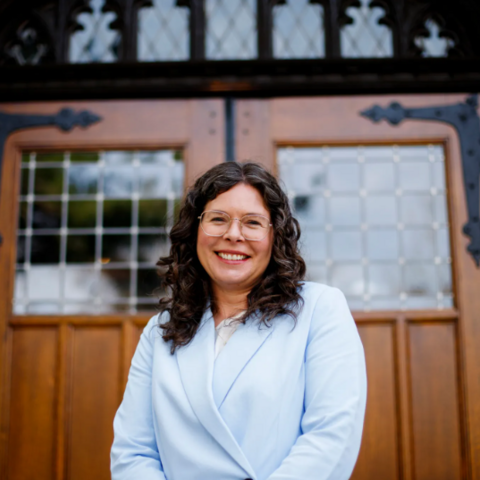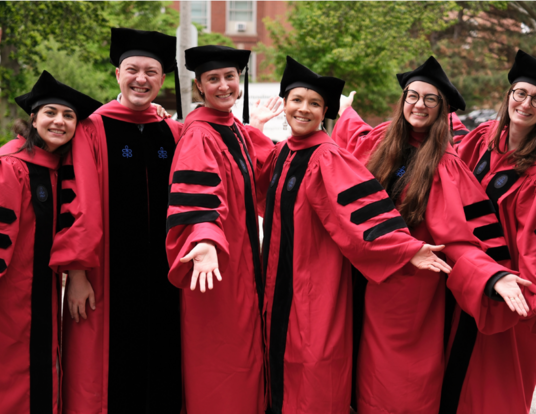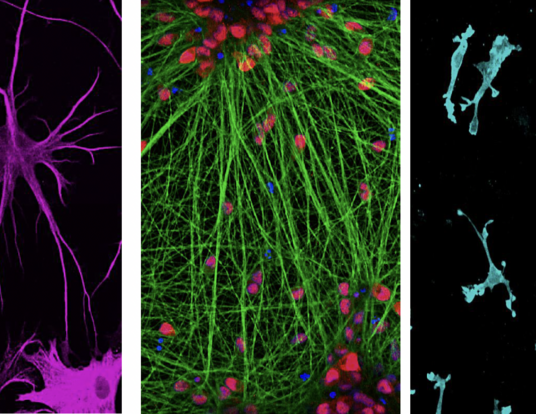Balance of Restraint
Katherine Irajpanah, PhD ‘25
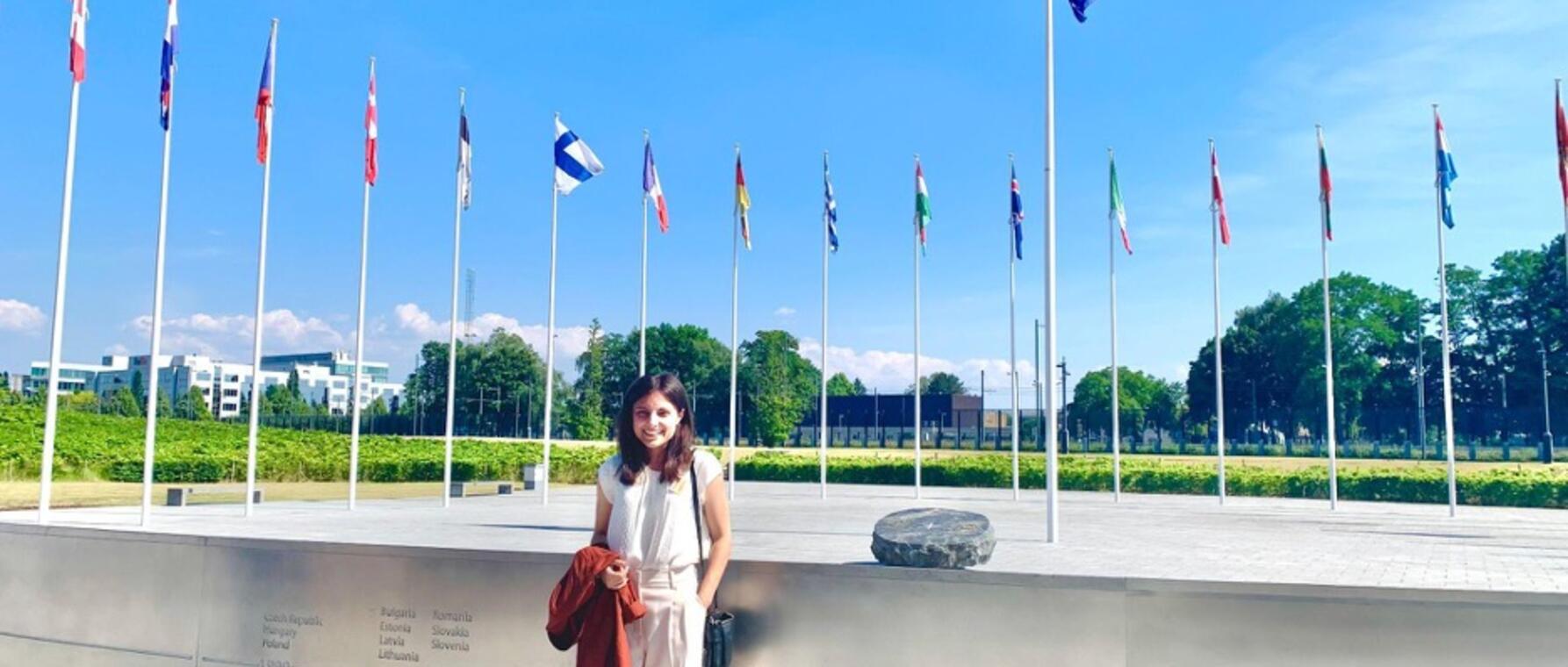
Research at Risk: Since World War II, universities have worked with the federal government to create an innovation ecosystem that has yielded life-changing progress. Now much of that work may be halted as funding is withdrawn. Find out more about the threats to medical, engineering, and scientific research, as well as how Harvard is fighting to preserve this work—and the University's core values.
Katherine Irajpanah will graduate in May 2025 with a PhD from the Department of Government. Her research examines the sources of restraint in political violence and U.S. foreign policy, with a focus on the role of international norms.
The First Check on Power
On a sticky summer day in June 2018, I found myself in the throes of archival research at the Harry S. Truman Presidential Library in Independence, Missouri. For hours, I pored over historical documents with the aim of understanding why, in June 1950, President Truman took the United States to war on the Korean Peninsula without formally declaring the military engagement as a war, instead sidestepping Congress entirely. I found a treasure trove of documents indicating how officials worried about the international diplomatic consequences of declaring war, as an “aggressor” might—a deeply problematic perception in light of the post-World War II era that, at least in principle, outlawed aggression under the United Nations Charter.
At the time of this discovery, I was an undergraduate at Stanford majoring in International Relations (IR) and preparing my senior thesis. My passion for IR arose from my diverse heritage–Iranian, Mexican, and American. A core interest of mine was also a desire to understand the wars the United States waged against powers far weaker than itself. With ongoing “forever wars” in Afghanistan and Iraq, the idea to study legal restraints on presidents embarking on protracted conflicts struck me like lightning. I was stunned to realize that the United States had, in fact, not formally declared any of its wars since World War II–presidents instead relied on alternative authorities, such as emergency powers and other forms of congressional approval. Why once-routine forms of accountability for executive power disappeared puzzled me.
In collaboration with my mentor, Kenneth Schultz (AB ‘90), I studied this phenomenon in a more global context, examining why declarations of war disappeared around the world after 1945. When applying to graduate school, I pitched a related research agenda: how did the laws of war influence the conduct and settlement of armed conflict, both between states and within them? While it was quite alluring to stay in my home state of California, Harvard offered a dramatic change of scenery. And at the graduate admit visit, my now-dissertation chair Joshua Kertzer gifted me a signed copy of his book, Resolve in International Politics, with an encouraging note. With that gesture, I was resolved to switch coasts for the next stage of my academic career.
Making and Breaking Restraint in Asymmetric War
Many graduate students agonize over their choice of dissertation topic. I was no exception and was grateful for the many iterations of proposals my advising committee withstood. After many false starts, I found myself yet again at a presidential library during the early summer—this time at the William J. Clinton Presidential Library in Little Rock, Arkansas. Frustrated with the classification of many of the documents I sought, I pivoted my focus on U.S. foreign policy toward my broader interest in the long-lasting nature of asymmetric wars—wars between militarily unequal powers. The issue took on a new salience. The summer prior, U.S. troops withdrew from Afghanistan, and Kabul fell to the Taliban, officially ending America’s “longest war.”
A key barrier to my project was the challenge of measurement. It turns out to be exceptionally difficult to classify what “counts” as an asymmetric war since 1800. Returning from my foray into the Clinton Library in fall 2022, I was pushed by my advisers to gather more systematic data on military capabilities across different types of wars and armed groups, which ultimately led to my development of the Global Wars (GloW), 1800-2022 dataset. Working with two undergraduate research assistants, I introduced new and consolidated information on the military capabilities and strategies of participants in over 600 wars. Through this research, I discovered a fascinating pattern-–the duration of asymmetric wars had dramatically increased since 1918 (the end of World War I), whereas the duration of symmetric wars had not.
In my dissertation, The Balance of Restraint, I show how changes in international norms around warfighting—the standards by which actors fight—played an indispensable role in producing this phenomenon. Whereas warfighting norms once tended to advantage the most powerful actors in the international system, norms evolved to empower rebel groups. Specifically, I draw upon a wide array of historical texts to identify how guerrilla warfare—an approach to fighting structured around hit-and-run attacks—became a desirable strategy forged in the name of liberation, where it once was undesirable and a sign of a “lack of civilization.” The emergent balance of restraint, arising from the new normative environment, enabled rebels to survive longer when facing more powerful adversaries, thus drawing out their wars.
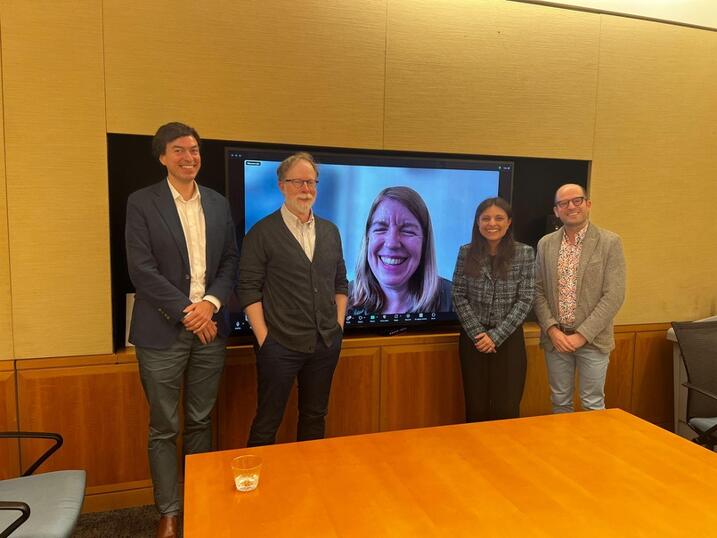
Power, Entrusted
My development as a researcher unfolded alongside my development as a teacher. I had the great fortune of being a teaching fellow for stimulating courses, from “The Psychology of International Relations” to “America as Occupiers and Nation-Builders,” and then leading my own seminar on the international politics of warfare. In addition to learning from an excellent example, I had the opportunity to develop my skills further through the certificate program through the Derek Bok Center for Teaching and Learning.
Through my teaching experience at Harvard, I have had the opportunity to refine my classroom philosophy, which I will take with me as an incoming assistant professor in the Government Department at Cornell University. To paraphrase Danielle Allen, the James Bryant Conant University Professor and director of the Allen Lab for Democracy Renovation at the Harvard Kennedy School, education delivers us from stasis and provides us the agency to grapple with the confusion of the immediate. In her experience of education during times of crisis, the classroom “catapulted our minds outside of this particular place and moment, and . . . the flight gave us back our minds.” In this fashion, my ambition as an educator is not to let students think of themselves as bystanders but to illuminate their agency and provide them the intellectual tools to make a positive difference.
Get the Latest Updates
Join Our Newsletter
Subscribe to Colloquy Podcast
Simplecast


